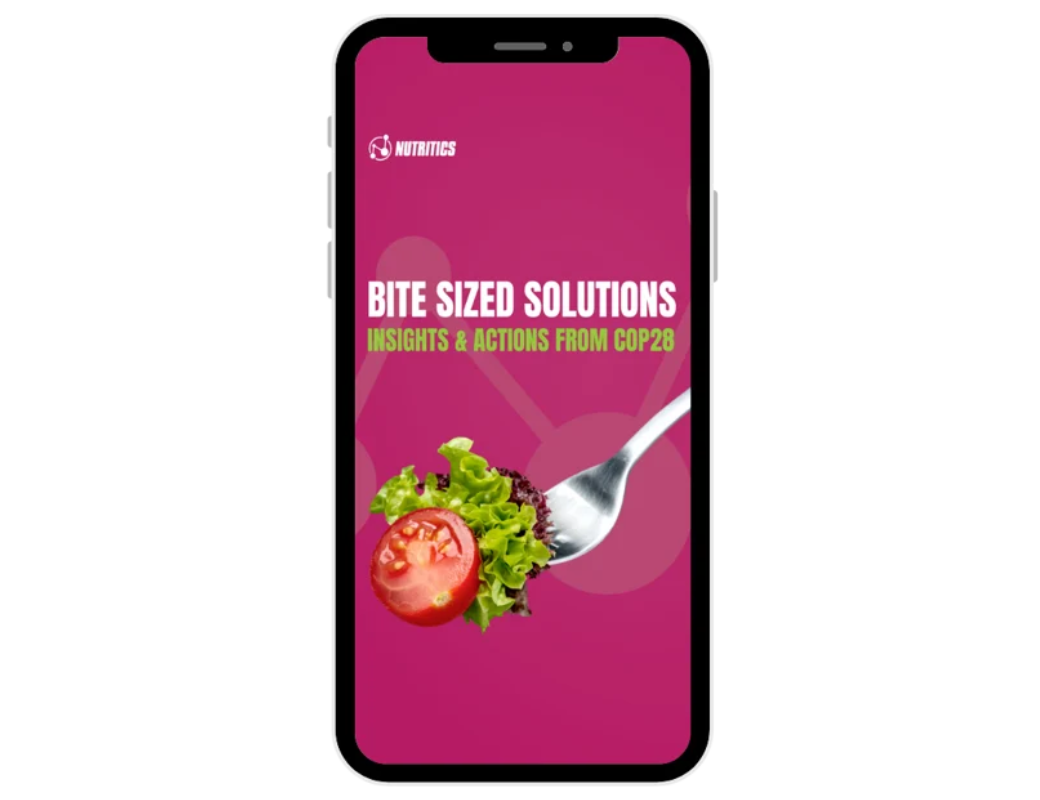The 2024 UN Climate Change Conference (UNFCCC COP 29) will be held from Monday 11th to Friday 22nd November 2024.
How Sustainable Food can Save your Business Time and Money
How Sustainable Food can Save your Business Time and Money
We took insights from COP28 to show you how you can implement sustainable food practices into your business to save money, save time, reduce waste and contribute to a greener planet.

Sustainable food can seem daunting for businesses to navigate
Although cost of living concerns have rocketed up consumer priority lists with sustainability waning slightly, customers are still mindful of where their food comes from, the impact it has on the environment and how their diet affects the environment. The percentage of Europeans who describe themselves as vegan has dropped by 29% in Q1 2023 compared to Q3 of 2021, with consumers needing to tighten their belts as food prices soar.
However, those describing themselves as flexitarians has increased by 13% year-on-year, with over 1 in 4 surveyed saying that they want to reduce their meat consumption.
With these trends in mind, how did COP28 help to put sustainable food back on the world stage and how can you take advantage of this as a food or hospitality business?
What happened at COP28?
COP28 was tasked with providing 250,000 meals to 60,000 visitors with a focus on delivering a 1.5°C aligned menu. Nutritics was selected as the software platform to deliver comprehensive food data—nutrition, allergens, carbon, and water footprints—to all COP28 attendees.
We analysed the environmental impact of food service at the event, setting a benchmark for future initiatives.
Reflecting on our COP28 experience, CEO Stephen Nolan underscores Nutritics’ role in delivering eco-friendly menus in this video from the event.
What’s inside our sustainable food insights?
-
COP28 Summary and Highlights
COP28 featured a whole day devoted to food and agriculture and saw a food systems road map laid out by the UN’s Food and Agriculture Organization (FAO). Sustainable food took centre stage, with Nutritics collaborating with vendors to measure, target, and reduce carbon and water usage in menus and showcasing food data to 60,000+ attendees. This helped show how small, actionable steps can contribute to the wider environmental effort.
-
Food Service and Hospitality Business Benefits
We are frequently asked what are the first things hospitality businesses can do to help. It all starts with three top tips: measurement, be commercial and be open to tech. We take you through how to take actionable steps in your business to navigate the sustainability challenges faced in 2024.
-
How to Thrive in a Sustainable Future
By minimising food’s environmental impact, businesses can save money, save time, improve the nutritional benefits of food served, amplify brand loyalty, and increase employee engagement. We show you how you can do that, with Nutritics helping you achieve these benefits.
Find practical steps to implement sustainability in your business
This ebook covers how: COP28 has put food sustainability on the global agenda, how these changes present untapped opportunities for businesses like yours in the food and hospitality industry, and how food businesses can navigate these changes and thrive in a sustainable future.
COP29 Frequently Asked Questions
When is COP29?
Which country is COP29 being held in?
COP29 will be held in Baku, Azerbaijan and will be led by Mukhtar Babayev, who was appointed the COP29 president in March, 2024.
What is the focus of COP29?
At COP29, the focus will be on:
- Creating a new New Collective Qualified Goal on Climate Finance, which will look to replace the current commitment of $100 billion annually until 2025. This goal will look to support climate-vulnerable countries in their move to lower emissions.
- Create new Nationally Determined Contributions (NDCs) – these were introduced in the Paris Agreement, and allow countries to propose what they will do domestically to help with emissions and their impact on climate change.
- Establish what funding support is needed for the UAE Framework for Global Climate Resilience – this was agreed at COP28, but more work needs to be done on measurement and finance agreements.
How can I find out more about COP29?
You can find out more by visiting the official COP29 website, which gives information on what it hopes to achieve, the presidency and the organising committee.